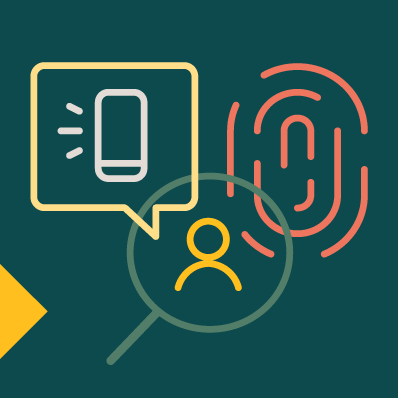Key Dates
Next Grant Round:
Applications for funding will open early 2025.
> Information about our Grants Program
Independent Grants Panel:
Results of the recent EOI will be notified Dec 2024.
> Information about our Panel
We can help: grants@accan.org.au
or phone 02 9288 4000
Subscribe to Grants Program mailings
![]()
Disclaimer:
This list is to be used for guidance only, and inclusion on it is not an endorsement or recommendation. This website is not intended to be a substitute for independent advice.
This list is intended to be a work in progress and ACCAN encourages feedback from the broader community on recommended improvements to the site and its contents. If you find some of this information incomplete or out of date please contact us at This email address is being protected from spambots. You need JavaScript enabled to view it..
Australia’s peak communications consumer body, ACCAN, is calling on the Communications Minister Michelle Rowland to exercise her discretionary powers and delay the 3G shutdown due to unacceptable public safety concerns.
The Senate Rural and Regional Affairs and Transport References Committee last week released an Interim Report into the shutdown of 3G networks. It found that up to 77,000 mobile phone users would be unable to call triple zero emergency services when the nation’s 3G networks were switched off.
ACCAN recently commented on the Department of Industry, Science and Resources’ proposals paper for introducing mandatory guardrails for AI in high-risk settings (the paper).
Artificial Intelligence (AI) is a rapidly evolving and broad technology that, with the right regulatory settings, can provide material benefits for consumers. AI can offer tailored services for consumers and potentially drive efficiencies in business, lowering the cost for consumers. However, as the paper notes, AI also carries risks of consumer harm through discrimination and data breaches.
Read more: Proposals Paper for Introducing Mandatory Guardrails for AI in High-Risk Settings
The Australian Seniors Computer Clubs Association (ASCCA) conducted research on the effectiveness of various digital literacy training methodologies that were being used by ASCCA's member clubs around Australia.
Further information on the project and the final report is available on the ACCAN Grants Scheme webpage.
The summary below outlines ACCAN’s activities from 1 September to 30 November 2015.

Grant Round: 2019
Amount: $50,000
Read more: Telecommunications Debt in Rural and Remote Indigenous Central Australian Communities
Reliable communications services have never been more important. The COVID-19 pandemic has proven that staying connected to friends and loved ones has never been more crucial, while a string of natural disasters have shown that phone and internet services are essential when it comes to recovery efforts and community rebuilding.
In August 2021, Telstra announced that any standard national mobile calls from ‘payphones’ would be made free. For many people, especially people living in capital cities, it might be difficult to remember the last time you needed to use a payphone. While not everyone has to rely on them to stay connected, payphones are still a very important service for many people, especially those that find themselves in need of a freely available form of communication.
Read more: Sunsetting Payphone Instruments
Write comment (0 Comments)![]()
Mobile devices - Victoria
ACCAN welcomes today’s joint announcement by Prime Minister Anthony Albanese and Communications Minister Michelle Rowland that 15,000 families are now receiving free internet connections via the School Student Broadband Initiative (SSBI).
Read more: More Australians now reaping the benefits of free broadband
ACCAN recently submitted to the Parliamentary Joint Committee on Intelligence and Security (the Joint Committee) on the Cyber Security Legislative Package 2024 (the Legislative Package). ACCAN’s comments on the Legislative Package are restricted to the Cyber Security Bill 2024 (The Bill).
In this submission, ACCAN provides the Joint Committee with recommendations to improve the cybersecurity of consumers using connected devices, including Internet of Things devices, by improving the enforcement structures established under the Bill relating to the security standards of connected devices.
ACCAN recommends that:
In November 2012 the Telstra Telephone Exchange at Warrnambool, south west Victoria, caught on fire and disrupted the telecommunications services of an entire region. This research, conducted by RMIT University and funded under the ACCAN Grants Scheme, examined the social and financial impact of this outage on the residents and small businesses of the region.
The research report, as well as a series of 'survival plans' for businesses, government and individuals, can be found on the Grants Scheme webpage.
The summary below outlines ACCAN's activities from 1 June to 31 August 2015.
 UTS School of Communication
UTS School of Communication
Grant round: 2017-18
Amount: $55,302

Planning on heading away with family or friends this summer?
With many Aussies choosing to holiday at home this year, travelling to rural, regional or remote areas can be a great idea for people wanting to escape the bustle of the city. However, city-dwellers who haven’t travelled into remote parts of the country before may not be aware of the things you have to consider when it comes to staying somewhere new.
Read more: Preparing for emergencies when telecommunications services go down
Write comment (0 Comments)![]()
Mobile devices - Tasmania
Consumers expect their telcos to be following basic rules to protect their critical accounts, and news of Telstra’s failure to follow well established customer ID processes is deeply disappointing, says ACCAN, the peak body for Australian communication consumers.
Customer ID rules exist to protect consumers against misuse of their accounts, loss of services or other fraudulent activity. The ACMA has today found Telstra failed to follow these rules for 168,000 high-risk customer interactions, including over 7000 interactions concerning customers identified as being in vulnerable situations. A penalty of $1,551,000 has been levied as a result.
Read more: Negligent anti-scam compliance an inexcusable oversight by Telstra
ACCAN recently submitted to the Environment and Communications Legislation Committee’s consultation on the Communications Legislation Amendment (Combatting Misinformation and Disinformation) Bill 2024 (the Bill).
In ACCAN’s view the Bill provides a foundation for tackling misinformation and disinformation on digital communications platforms. However, the Bill should be expanded to explicitly include measures which address consumer harms, such as minimum dispute resolution standards, which could be expanded to ensure appropriate complaints do not fall through the gaps.
Earlier this year Google and ACCAN partnered to offer a paid internship opportunity with ACCAN. Applicants were invited to submit a brief proposal outlining a research project on an emerging communications consumer issue.
The winner was recent law graduate David Seidler, who tackled the hot topic of data retention. Seidler’s report Hacking the Grapevine: Data Retention and protecting Australian consumer privacy is a first-class piece of research by a talented up-and-coming lawyer.
The summary below outlines ACCAN's activities from 1 March to 31 May 2015.
 QUT School of Justice, Faculty of Law
QUT School of Justice, Faculty of Law
Grant round: 2017-18
Amount: $53,247
Disinformation and misinformation are not new trends; digital content that is verifiably false, misleading, or deceptive has been around for almost as long as the internet has existed. However, over the last few years, we’ve seen growing awareness about the harms that disinformation and misinformation can cause to individuals and to trust in our systems.
After the ACCC’s Digital Platform Inquiry report was handed down in December 2019, the Australian Government asked digital platforms to develop a voluntary code of practice to help to address disinformation and misinformation.
In February 2021, DIGI, the non-profit industry association advocating for the digital industry in Australia, released The Australian Code of Practice on Disinformation and Misinformation. Digital platforms that sign up to this Code agree to abide by a set of rules, including publishing and implementing policies on misinformation and disinformation, providing users with a way to report content against those policies, and implementing a range of measures to reduce the spread and visibility of mis- and disinformation. They must also produce annual transparency reports about these efforts.
Read more: Disinformation and Misinformation on Digital Platforms
Write comment (0 Comments)






